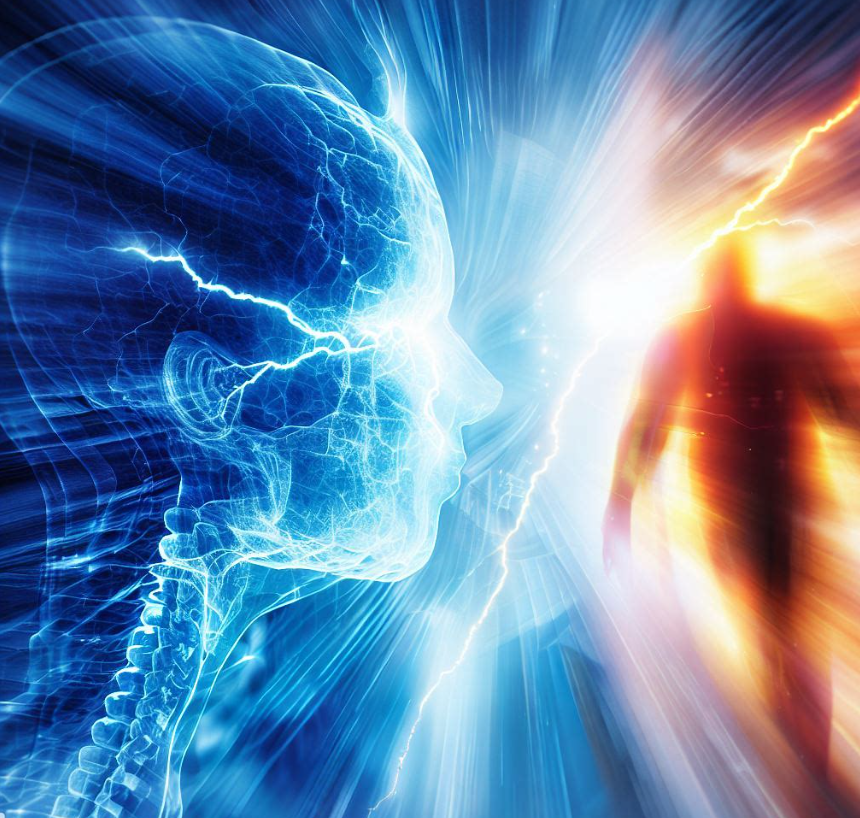The process of aging has a profound effect on the dynamics of energy production and consumption in the body, through a complex interplay of factors such as metabolic rates, cellular activity, and physical activity. The altering progression of these facets forms an intricate tapestry of changes that, in turn, affect energy levels and the body’s use of calories and nutrients.
A significant factor in this dynamic is the body’s metabolic rate, which refers to the rate at which the body utilizes energy at rest. This rate shows a decreasing trend as one ages, resulting in a slow but steady reduction of energy levels. The metabolic shift, caused by an intricately coordinated combination of genetic and biochemical factors, also means a slower rate of calorie burning. Consequently, this decreased metabolism may lead to increased body fat and weight gain over time, if not counteracted by appropriate diet and physical activity.
The influence of cellular performance, particularly of mitochondria, cannot be understated in this context. Mitochondria are essentially the energy factories within each cell, producing a chemical compound known as adenosine triphosphate (ATP). ATP is crucial for energy production because it orchestrates the biochemical reactions that generate energy in the body. Unfortunately, mitochondrial efficiency commonly depreciates as we age, resulting in less ATP production. This shortage hampers the energy availability necessary for bodily functions thus depreciating overall energy levels.

Crucially related to this aging dynamic is physical activity. As individuals age, it’s quite common to see a decline in physical activity levels. This reduction may be due to several factors, like arising health issues, alterations to lifestyle, or a blend of both. A regular regimen of physical activity doesn’t only enhance physical fitness and health but also amplifies energy levels. This improvement happens because exercising instigates the body to burn accumulated fat and calories. As a result, the decline in physical activity with age may significantly influence both the production and consumption of energy in the body.
The interrelated variables of metabolism, cellular activity, and physical activity shape the often-declining energy levels associated with aging. By understanding the underlying mechanisms behind such shifts, effective strategies can be formulated that may help to maintain or even boost energy levels as people age. This knowledge could ultimately lead to improved health and vitality for everyone as they advance in years.
The Influence of Nutrition on Energy Levels and Aging
The influence of nutrition on energy levels and aging cannot be overemphasized. People often overlook the vital role nutrition plays, not merely in maintaining physical health but also its direct impact on the energy levels in the body and the overall aging process. As human bodies progress through the natural course of aging, the effect of nutrition becomes more and more evident.
Malnutrition, a condition that manifests through insufficient nutrient intake or even excessive eating, has profound impacts on energy levels and one’s health. It jeopardizes agility, stamina, and general wellness, hastening the visible signs of aging. When one consistently overfeeds or underfeeds, the body experiences an imbalance that becomes problematic, leading to decreased energy levels and accelerated aging.
In striking contrast, a diet that is balanced and rich in vital nutrients works wonders in sustaining ideal energy levels. One crucial practice is having regular, well-placed meals. These meals should be a healthy mix of proteins, carbohydrates, and fats that are beneficial to the heart. This combination supplies the body with all the necessary nutrients and energy throughout the day, helping it function optimally.
Proteins, carbohydrates, and fats are essential, but they are not the only foods needed to maintain high energy levels. Foods abundant in B-vitamins and iron contribute significantly as well. B-vitamins and iron are essential components in ATP production, the primary energy currency of the body’s cells. Consuming foods rich in these nutrients ensures a continuous supply of energy to the body.
Apart from the nutrients gained through food intake, it is equally vital to consider the body’s hydration status. Water plays a role in nearly all bodily functions; thus, keeping the body well hydrated is critical. Hydration performs several functions in the body, such as regulating body temperature, enabling necessary bodily functions, and enhancing cell health. It turns out that staying well-hydrated is an essential aspect of maintaining high energy levels.
Maintaining a proper nutritional balance and keeping well-hydrated does almost more than any other bodily function to slow down the aging process and sustain high energy levels. Deciding to take nutrition seriously necessitates a commitment to a balanced diet, consistently staying well-hydrated, and eating meals at regular intervals. These practices do not only enhance energy production – they contribute profoundly to healthier aging and an overall increase in life quality.
Tips to Maintain High Energy Levels in Aging

The process of aging is a natural part of life that can bring numerous changes, including a decline in energy levels. Rather than resigning oneself to lower energy, however, modifications in lifestyle can effectively address this issue and help maintain vitality. By speaking the language of holistic health, several key practices come to light that can effectively help retain high energy levels.
One such practice is the incorporation of regular exercise into daily routines. Physical activity possesses the power to trigger the body’s natural calorie-burning processes. This means that instead of storing excess fat and calories, the body burns them to produce energy. Starting a systematic fitness routine has been shown not only to increase endurance but also to build muscle mass and enhance the health of the cardiovascular system.
Beyond incorporating regular physical activity, prioritizing good sleep is equally important. Insufficient sleep can translate directly to fatigue and a noticeable decrease in energy levels. Sleeping should not be seen as a luxury, but rather as an essential part of daily routines that are required to maintain physical and mental vigor throughout the advancing years.
Nutrition also plays a pivotal role in maintaining energy levels. Consuming a diet rich in proteins, vitamins, and minerals supports the body’s energy metabolism, providing sustainable fuel and promoting cellular health. It’s equally important to hydrate adequately. Water aids in nutrient transport in the body, aids digestion, and helps maintain a proper electrolyte balance which can help energy levels remain steady.
Mental health and psychological well-being are other areas that require attention when addressing energy levels. Conditions like stress and depression are known to contribute directly to decreased energy. Implementing stress-management techniques, such as deep breathing exercises, meditation, or mindfulness, can have a positive impact on mental health. These practices can promote a sense of calm, enhance mood, and essentially contribute to a happier, healthier, and more energetic life as we age.
The physical energy may decline due to aging but with a proper plan to sustain the body’s metabolic rate, cellular health, physical activity, a well-balanced diet, and a calm state of mind, this setback can be effectively managed. As such, aging can be accompanied by a healthier, more active lifestyle, with energy levels preserved or even enhanced. This approach allows for a positive mindset with every passing year and a resilient attitude towards the aging process.